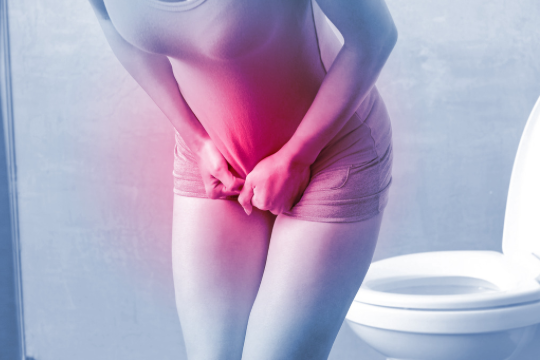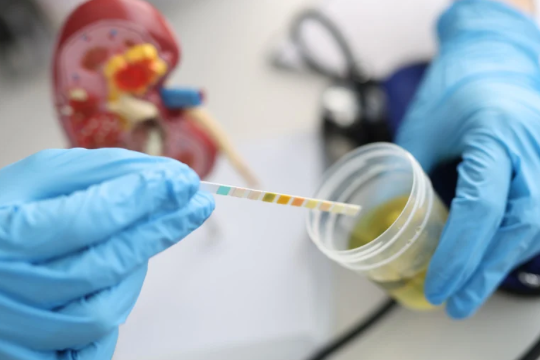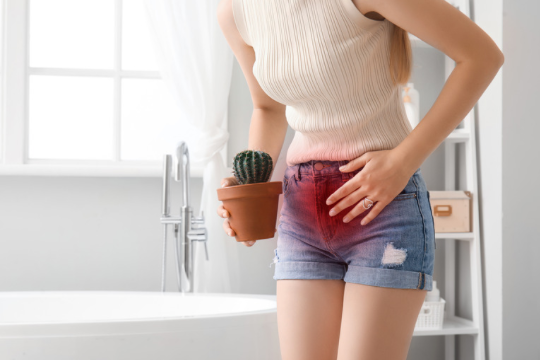Interstitial cystitis (IC), also known as painful bladder syndrome, is a chronic condition that affects the bladder and pelvic region. It impacts an estimated 3 to 8 million women in the U.S., accounting for 3% to 6% of all women, according to ICHelp. Despite its prevalence, IC is often misunderstood and misdiagnosed, leaving many women searching for relief. This guide explores the symptoms, causes, and effective management strategies for IC.
What Is Interstitial Cystitis?
Interstitial cystitis is a chronic bladder condition characterized by bladder pain and pressure, often accompanied by urinary urgency or frequency. Unlike typical urinary tract infections (UTIs), IC has no identifiable infection, making diagnosis challenging.
The condition can vary greatly from person to person, with some experiencing mild symptoms and others dealing with severe, life-altering discomfort.
Symptoms of Interstitial Cystitis
IC symptoms can mimic other conditions, such as UTIs or overactive bladder. Common signs include:

- Persistent bladder pain or pressure.
- Frequent urination, sometimes up to 60 times a day.
- Urgency to urinate, even with an empty bladder.
- Pain during intercourse.
- Discomfort that worsens with certain foods or beverages, such as caffeine, alcohol, or spicy foods.
Symptoms often fluctuate, with periods of remission followed by flare-ups.
Causes and Risk Factors
The exact cause of IC is unknown, but researchers have identified several potential contributors:
- Bladder Lining Defects: Damage to the bladder’s protective lining may allow irritants to penetrate and cause inflammation.
- Autoimmune Disorders: IC is often linked to autoimmune conditions like lupus or rheumatoid arthritis.
- Nerve Dysfunction: Abnormal nerve signals may contribute to heightened pain responses.
- Genetics: A family history of IC may increase susceptibility.
Women are significantly more likely than men to develop IC, particularly those in their 30s or 40s.
Diagnosing Interstitial Cystitis

Diagnosing IC involves ruling out other conditions with similar symptoms. Common diagnostic steps include:
- Medical History and Symptom Review: A healthcare provider will evaluate your symptoms and medical background.
- Pelvic Exam: Identifies tenderness or abnormalities in the pelvic region.
- Urine Tests: Rules out infections or other bladder issues.
- Cystoscopy: A procedure that uses a camera to examine the bladder for inflammation, ulcers, or other abnormalities.
Treatment Options for Interstitial Cystitis
There’s no cure for IC, but various treatments can help manage symptoms and improve quality of life. These include:
1. Lifestyle Modifications
- Dietary Changes: Avoid known bladder irritants, such as caffeine, alcohol, and acidic foods.
- Stress Management: Practices like yoga or mindfulness can help reduce symptom flare-ups.
- Pelvic Floor Therapy: Exercises or physical therapy can strengthen pelvic muscles and alleviate pain.
2. Medications
- Oral Medications: Antihistamines, tricyclic antidepressants, or pain relievers may reduce inflammation and discomfort.
- Bladder Instillations: Medications inserted directly into the bladder to soothe irritation.
3. Procedures
- Hydrodistention: Expanding the bladder with fluid during a cystoscopy can provide temporary relief.
- Nerve Stimulation: Devices like sacral nerve stimulators may help manage chronic pain.
4. Supportive Therapies
- Counseling or support groups can offer emotional and practical help for managing IC.
Living with Interstitial Cystitis
Coping with IC often involves a multi-faceted approach, combining medical treatment with lifestyle adjustments. Keeping a symptom diary can help you identify triggers and track progress over time.
If you suspect IC, don’t delay seeking medical advice. With proper diagnosis and treatment, many women find significant relief and regain control of their lives.
At the Women’s Center of Athens, our experienced physicians are dedicated to providing compassionate care for bladder health and pelvic conditions. Schedule an appointment today to explore treatment options tailored to your needs.


